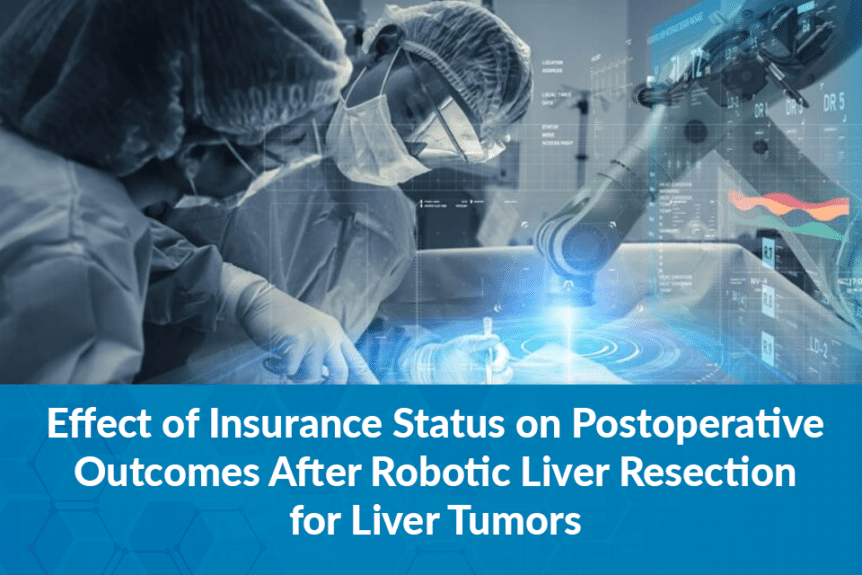
Effect of Insurance Status on Postoperative Outcomes After Robotic Liver Resection for Liver Tumors: A Matched Analysis
Last month, Dr. Sucandy and his team participated at the Academic Surgical Congress (ASC) in Orlando Florida as presenter and moderators for various surgical scientific sessions. Dr Sucandy’s trainee presented a clinical study led by Dr. Sucandy as the primary investigator regarding the effect of insurance status on postoperative outcomes after robotic liver surgery. This was a matched analysis with comparison to open liver operation. “As a high volume center for liver surgery, we want to study if socioeconomic factors affect our clinical outcomes”, explained Dr. Sucandy.
In the field of abdominal surgery, socioeconomic factors of patients are known to significantly impact treatment outcomes in colorectal, bariatric, breast, and pancreatic operations. The impact of health insurance status on patients undergoing hepatectomy is limited, especially when a minimally invasive technique is utilized. In this study, Dr Sucandy and his colleagues aim to determine the influence of insurance status on intra- and postoperative outcomes in patients undergoing robotic liver surgery. “We do not want to treat our patients differently, in fact, they should get similar level of care regardless of their socioeconomic status”, said Dr. Sucandy.
With institutional review board approval, Dr. Sucandy and his team prospectively followed 275 patients who underwent robotic liver surgery for the treatment of liver tumors. Patients were stratified by their health insurance status (i.e., Private, Medicare, and Medicaid/Uninsured). To eliminate confounding variables, 16 patients in each cohort were matched by IWATE score criteria (±1) and age (±5 years). Iwate score is a Japanese scoring system used worldwide to measure technical difficulty/complexity in minimally invasive liver resections. The higher the score, the more difficult a liver surgery is. High volume center for liver surgery such as ours in Florida routinely utilize this score to plan for minimally invasive liver surgery.
121 (44%) patients had private insurance, 121 (44%) had Medicare, and 33 (12%) had Medicaid or were uninsured. Before the matching, age, sex, American Society of Anesthesiology class, MELD (liver function) score, and length of stay were statistically different according to the type of insurance. The level of technical complexity as reflected by IWATE scores, however, was similar. As expected, the Medicare patients were significantly older when compared to those under private, Medicaid, and without insurance. Following the matching, no statistical differences were found in the pre-, intra-, and short-term postoperative variables among the patients. Our liver center is delivering similar care and producing equivalent clinical outcomes for all patients undergoing liver surgery, regardless of their insurance or socioeconomic status. Dr. Sucandy and his colleagues were very pleased to see these objective findings based on 5 year data in their liver surgery center.
Dr. Sucandy confirmed that in his liver program, health insurance status does not predict operative complexity and perioperative outcomes after robotic liver resection to cure liver tumors. Every patient deserves to see the best robotic liver surgeon for their liver cancer treatment. In Florida, Dr. Sucandy is leading the best liver surgery center. He quoted “This study proved that our liver center is treating patients from all different socioeconomic status with the best modern method (minimally invasive robotic technique) without any compromise”.

